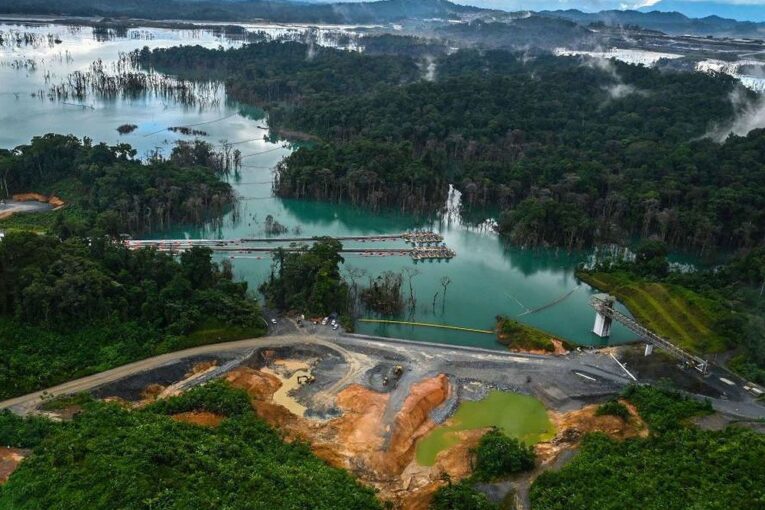
[ad_1]
First Quantum Minerals Ltd. might not be as close to resolving its differences with the Panamanian government as the company suggested earlier this week.
Chief executive Tristan Pascal said on a Jan. 10 conference call that First Quantum and Panama weren’t “far away” from a new agreement that would allow the Vancouver-based company to continue operating the Cobre Panama mine, one of the most significant deposits of copper on the planet.
But Panama is sticking to a hard line. The country’s industry minister, Frederico Alfaro Boyd, said First Quantum would have to meet the government’s terms if it wants to continue operating in the Central American country.
“The ball is in their court,” Boyd said in an interview on Jan. 12. “It’s up to them, they know that the clock is ticking.”
‘Significant gap’
First Quantum has been negotiating a new contract for the rights to exploit Cobre Panama, situated about 120 kilometres west of Panama City, for about a year. Talks broke down temporarily in mid-December after a deadline to sign a new contract was missed and the Panama government ordered the miner to make plans to temporarily suspend operations.
The mine continues to operate, although First Quantum, in accordance with the government’s order, is in the process of submitting a plan to put the mine under care and maintenance.
Boyd’s tough stance could be a negotiating tactic. Regardless, the minister said there was still a “significant gap” on certain terms of the contract. Issues include the amount of money the government would pay First Quantum if the contract was terminated and tax provisions, which Boyd described as, “fundamental aspects that the government of Panama has to retain in order to safeguard the rights to the Panamanian people.”
The minister added that the new contract will include stricter regulations on environmental, legal and labour issues that are “more in line” with other resource-rich nations.
With three billion tonnes of reserves, Cobre Panama is one of the largest new copper mines to open globally in the past decade, according to First Quantum.
Demand for green metals
First Quantum’s struggles in Panama come at a time when governments around the world are eager to earn more revenue from mining operations in their jurisdictions. Demand for green metals such as copper and lithium have surged as countries look for ways to meet their climate goals.
We understand how valuable copper will be in the future
Panama industry minister Frederico Alfaro Boyd
Boyd said he expects Cobre Panama to operate for about 40 years and play a key role in supplying the minerals required for building electric vehicles and supporting the green transition.
“We understand how valuable copper will be in the future,” the minister said. “But we are also mindful that we have to protect our environmental record which is a good record,” he continued. “We are one of the three carbon negative countries of the world.”
First Quantum’s previous contract to run the mine was annulled by Panama’s Supreme Court in 2017 and the minister said that the miner has been running the mine without a contract ever since. When the two parties started discussions on a new deal about a year ago, Panama gave First Quantum until mid-December to enter a new contract.
While Boyd is keen on ensuring that the mine, which employs thousands of Panamanians and plays a key role in the country’s economy, continues to operate, his statements suggest that the government is losing patience.
Boyd said it was important for the international community to understand that Panama was “abiding by the rule of law” and that it would continue to do so.
First Quantum has agreed to pay Panama’s government US$375 million per year through taxes and royalties, a commitment that Pascall described as “unique” in the world of taxation.
However, Boyd disagreed that Panama’s expectations were extraordinary, describing the conditions the government has set out as in line with the global standards.
“Our expectation has always been to enter into a contract,” Boyd said. “But now we reached a point whereby they did not meet that deadline (Dec. 14) and 11 months have passed. We have been highly reasonable, highly patient.”
• Email: [email protected] | Twitter: naimonthefield
[ad_2]
You can read more of the news on source
